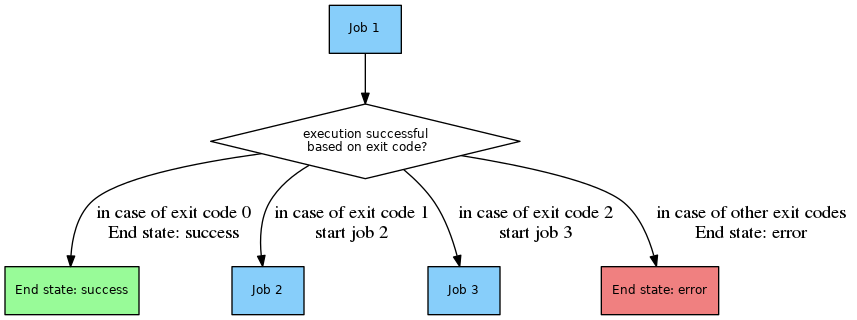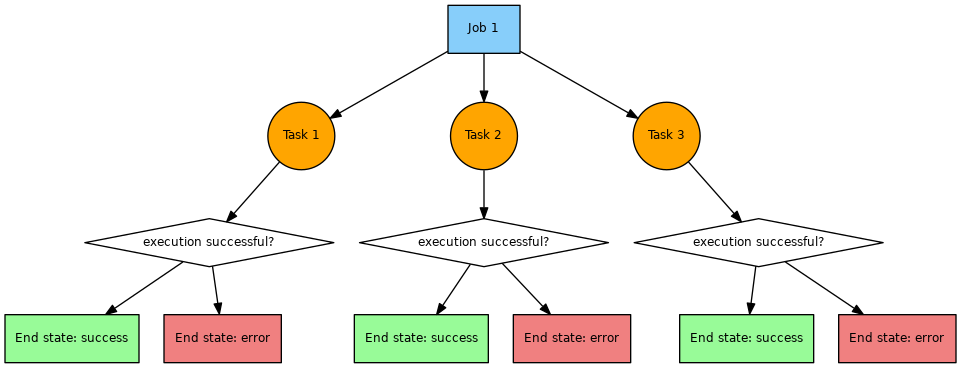Use of Jobs
Read more on the features of Job Objects in the job documentation.
Job Patterns
Independent Job Start Pattern
- Jobs are completely independent from one another.
- Each job has an individual start time.

Job Start Pattern based on Execution Results
- Jobs are started based on the execution result of a previous job.
- If Job 1 returns an exit code 1 then Job 2 will be executed.
- If Job 1 returns an exit code 2 then Job 3 will be executed.

Parallel Tasks Job Start Pattern
- Jobs can be executed in multiple parallel tasks.
- All tasks are executed independently from one another.

Jobs in Job Chains
In contrast to the stand-alone use of Jobs described above, Jobs are often used in Job Chains with Orders where the processing of a Job is dependent on the results of processing of previous Jobs in the Job Chain. See the Job Chains article for more information.